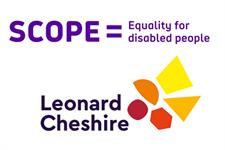Bosses at two of the UK’s largest disability charities have denied claims they plan to merge as a result of the coronavirus pandemic.
Scope and Leonard Cheshire have rejected a report in The i newspaper that they had held “advanced merger talks” as repercussions from Covid-19 continue to impact the voluntary and not-for-profit sector.
The i said it has seen provisional documents that revealed a planned merger was intended to be announced in September with a formal tie-up taking place in April next year, although plans have been delayed due to the subsequent lockdown.
However, both charities told Third Sector that talks of a merger are unfounded.
Mark Hodgkinson, chief executive at Scope, said it is “absolutely untrue” that the charity had been “aggressively cutting staff” or holding merger talks with Leonard Cheshire.
He added: “Working in partnership is at the heart of our approach and we are always open to exploring any opportunities to better serve the needs of the UK’s 14 million disabled people and their families.
“We work closely with Leonard Cheshire, amongst others, through the Disability Charities Consortium and plan to work more collaboratively in the future to drive change for disabled people.”
Hodgkinson explained that Scope had made 20 staff redundant in the last year as part of operational decisions connected to how the charity delivers its strategy.
“In 2017/18, we transferred 1,600 staff as part of our decision to sell our regulated and day services. This marked a bold new direction for Scope to focus on tackling disability inequality, advocacy, information and support,” he said.
David Jessop, executive director at Leonard Cheshire, also denied that talks had taken place.
“We are not currently in merger discussions with Scope,” he said.
“Leonard Cheshire is committed to supporting disabled people to live, learn and work independently and this remains our sole purpose.”
Jessop said the long standing relationship between the two charities means they often discuss how best to meet the support needs of the 14m disabled people in the UK.
“This ranges from joint initiatives to more formal arrangements, maximising our organisations’ impact and reach. We will always strive to serve the disabled community to the best of our abilities.”
